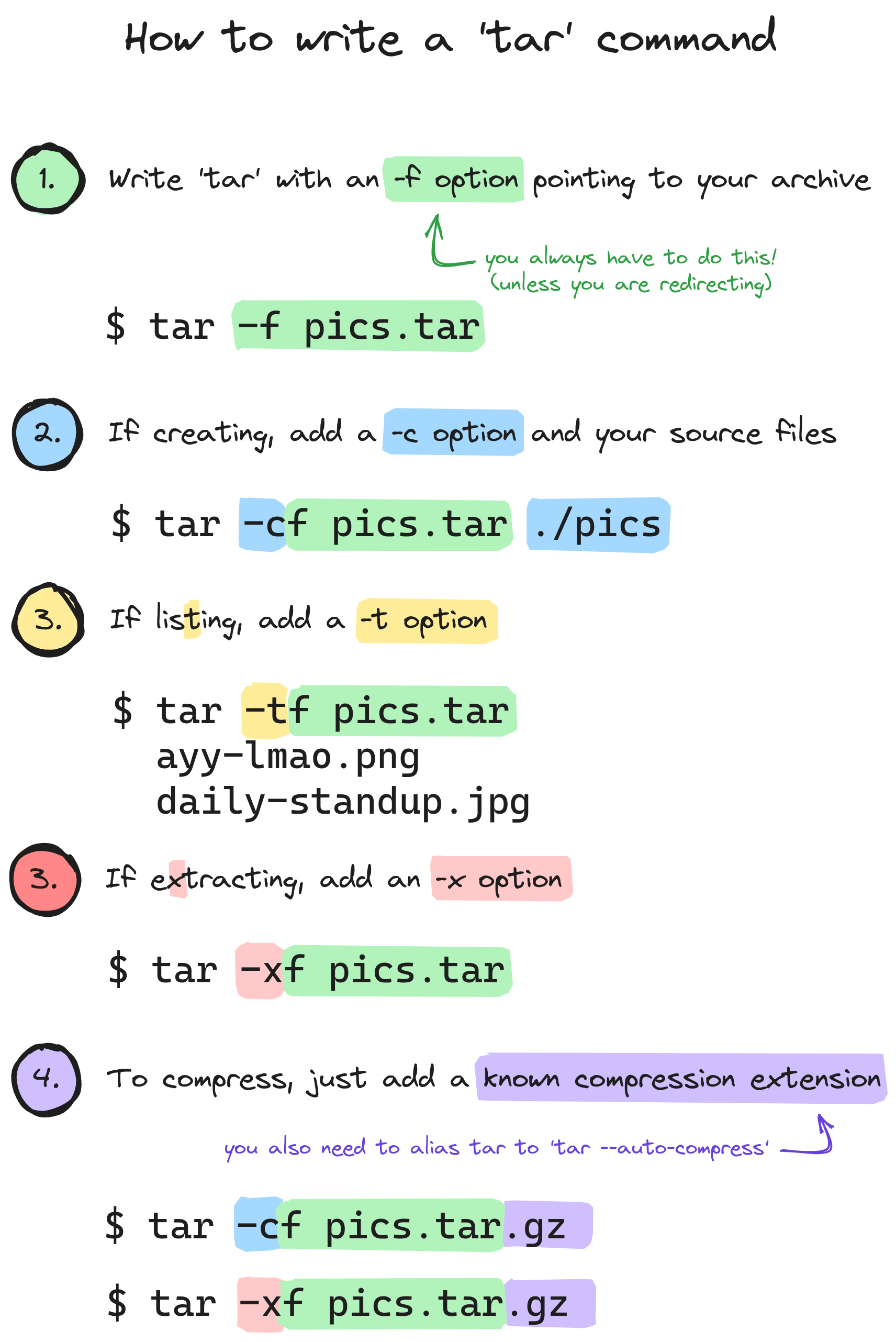Just add -a for auto compression.
Linux
From Wikipedia, the free encyclopedia
Linux is a family of open source Unix-like operating systems based on the Linux kernel, an operating system kernel first released on September 17, 1991 by Linus Torvalds. Linux is typically packaged in a Linux distribution (or distro for short).
Distributions include the Linux kernel and supporting system software and libraries, many of which are provided by the GNU Project. Many Linux distributions use the word "Linux" in their name, but the Free Software Foundation uses the name GNU/Linux to emphasize the importance of GNU software, causing some controversy.
Rules
- Posts must be relevant to operating systems running the Linux kernel. GNU/Linux or otherwise.
- No misinformation
- No NSFW content
- No hate speech, bigotry, etc
Related Communities
Community icon by Alpár-Etele Méder, licensed under CC BY 3.0
tar xafv every time, works like a charm.
^r tar and adjust as needed. Got it
i leave off the dash ;)
I didn't know about auto-compress, thanks!
Saved this. Just like I did for tens of tar cheat sheets before. No, I won't remember it exists when I'll need to use tar. I will google it. I'll read that Stack Overflow page again. I will not enjoy it.
T_T
I'll keep using TLDR, best cli command ever.
I just have pack and extract functions in my shell RC files that look at file extensions and use the proper tool with proper arguments.
Wrote them 10 years ago and they've worked flawlessly ever since!
I would also recommend -v for verbose and -z when compressing for gzip
What does --auto-compress do?
Auto compress will use gzip if the file ends with .gz, bzip if it ends with .bz, and so on without mentioning -z
My tar command is tldr tar then ctrl + c / ctrl + v
tar, please eXtract the Vucking File!
tar -xvf tarbomb.tar.
Damn, I'm using the "tape archiver" (this is what tar means) since I installed HPUX8 in the 90s, from tape, yes...
Or -I 'compress-command' -cf ... if not supported.
